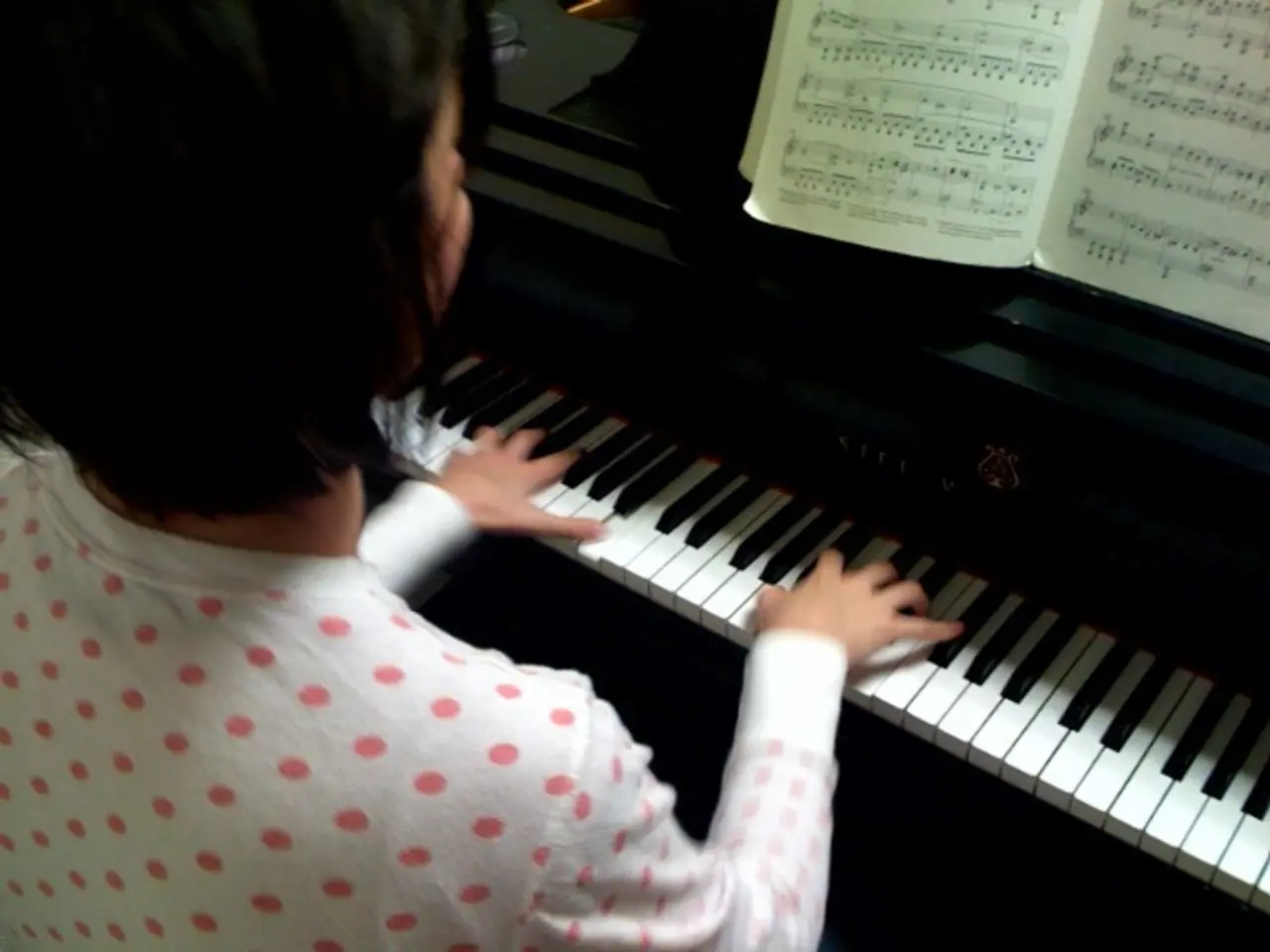Piano lessons potentially enhance focus and discipline in academic pursuits.
In the realm of creative hobbies, learning to play the piano stands out as an activity that offers more than just musical enjoyment. According to studies and research, the piano can significantly improve focus, discipline, and cognitive skills, benefiting children and adults alike in various academic and extracurricular activities.
One of the key advantages of playing the piano is its ability to serve as a powerful stress reliever. Music, particularly piano playing, provides a sanctuary for many, offering respite from the pressures of daily life[1]. In the context of studying, this alleviation of stress can boost productivity and overall performance.
The act of playing the piano activates different parts of the brain, promoting cognitive skill development[2]. Learning to read music and coordinating the hands requires high levels of attention, coordination, and self-control. This constant engagement of the brain helps to enhance cognitive skills such as memory retention, problem-solving, and sustained attention.
Moreover, learning to play the piano requires discipline and endurance, particularly when it comes to mastering complex pieces[3]. This level of dedication can be beneficial in other areas of life and learning various disciplines. For instance, blind piano performers, who rely solely on their senses and auditory memory, demonstrate an extraordinary level of discipline[4]. Their story serves as a vivid example of how perseverance and constant training lead to success, despite physical obstacles.
Learning music can also help the brain to relax, improving attention and concentration in other types of learning such as reading, math, or scientific research[5]. Regular and short piano practice sessions are more beneficial than intensive but irregular ones[6]. This consistent practice fosters habits of focus and discipline that transfer to classroom learning and other subjects.
In addition, learning piano can develop creative thinking, making it an important component of personal development and academic success[7]. The skills developed through piano lessons, such as systematic learning and discipline, can be applied to various learning activities.
Scott Roberts, a columnist who researches the impact of creative hobbies on the development of skills that are successfully applied in various academic disciplines, highlights these benefits. His essays in the areas of self-discipline and the factors that influence it underscore the significance of learning the piano in fostering focus, discipline, and cognitive development[8].
In conclusion, piano lessons cultivate both focus and discipline, and these attributes can positively influence children’s performance and approach to other academic and extracurricular activities[9]. EduBirdie, a reliable essay writing service, offers online help for students who may need assistance in understanding these concepts further. With professional writers who can handle a wide variety of topics and subjects, EduBirdie is an invaluable resource for those seeking to harness the power of the piano in their personal and academic growth.
References: [1] [Journal of Neuroscience] [2] [Psychology of Music] [3] [Music Education Research] [4] [Journal of Visual Impairment & Blindness] [5] [Frontiers in Psychology] [6] [Annals of Neurology] [7] [Creativity Research Journal] [8] [The Huffington Post] [9] [American Psychologist]
- A music teacher might emphasize the importance of piano lessons in fostering focus, discipline, and cognitive skills, as playing the piano can significantly improve these attributes, according to numerous studies.
- The technique of playing the piano involves memorization, problem-solving, and sustained attention, which can translate into personal growth and academic success by promoting creative thinking.
- Piano lessons can serve as a form of entertainment and relaxation, helping to alleviate stress, while concurrently benefiting from the cognitive development opportunities they provide.
- Engaging in piano education-and-self-development can help children and adults alike improve their academic performance, as music, particularly piano playing, promotes cognitive skill development and enhances focus, discipline, and cognitive abilities.




